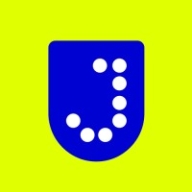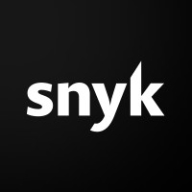

Snyk and Jscrambler compete in application security. Snyk has the upper hand in integration capabilities, benefiting from extensive compatibility with development tools.
Features: Snyk offers seamless integration with development environments, comprehensive vulnerability detection, and extensive open-source support. Jscrambler provides code obfuscation, anti-tampering capabilities, and strong front-end security measures.
Ease of Deployment and Customer Service: Snyk is known for its streamlined deployment, extensive documentation, and responsive customer service. Jscrambler features a robust deployment model for client-side security and reliable customer support, with its strength in front-end integration.
Pricing and ROI: Snyk is recognized for its competitive pricing and wide-ranging security enhancements that contribute to a notable ROI. Jscrambler, priced as a premium offering, focuses on high client-side security returns through advanced obfuscation features.
| Product | Mindshare (%) |
|---|---|
| Snyk | 5.5% |
| Jscrambler | 0.6% |
| Other | 93.9% |

| Company Size | Count |
|---|---|
| Small Business | 21 |
| Midsize Enterprise | 9 |
| Large Enterprise | 22 |
JSCRAMBLER ENABLES THE DETECTION AND MITIGATION OF COMPROMISED WEB SESSIONS IN REAL-TIME BY...
1. Instantly detecting any malicious code injection in the client-side of your application, whether it comes from a compromised user device/browser or rogue third-party code (supply chain attacks like Magecart);
2. Getting detailed information about the malicious code and attack delivery system (malicious browser extension, hacked form, etc.);
3. Reacting in real-time with custom countermeasures such as blocking the malicious script, raising the user session's risk or notifying the fraud department.
Webpage Integrity is trusted by enterprise customers in several sectors, including Banking, Financial Services, E-Commerce, and Government.
Snyk excels in integrating security within the development lifecycle, providing teams with an AI Trust Platform that combines speed with security efficiency, ensuring robust AI application development.
Snyk empowers developers with AI-ready engines offering broad coverage, accuracy, and speed essential for modern development. With AI-powered visibility and security, Snyk allows proactive threat prevention and swift threat remediation. The platform supports shifts toward LLM engineering and AI code analysis, enhancing security and development productivity. Snyk collaborates with GenAI coding assistants for improved productivity and AI application threat management. Platform extensibility supports evolving standards with API access and native integrations, ensuring comprehensive and seamless security embedding in development tools.
What are Snyk's standout features?
What benefits can users expect?
Industries leverage Snyk for security in CI/CD pipelines by automating checks for dependency vulnerabilities and managing open-source licenses. Its Docker and Kubernetes scanning capabilities enhance container security, supporting a proactive security approach. Integrations with platforms like GitHub and Azure DevOps optimize implementation across diverse software environments.
We monitor all Application Security Tools reviews to prevent fraudulent reviews and keep review quality high. We do not post reviews by company employees or direct competitors. We validate each review for authenticity via cross-reference with LinkedIn, and personal follow-up with the reviewer when necessary.